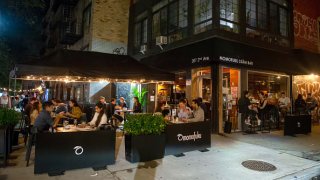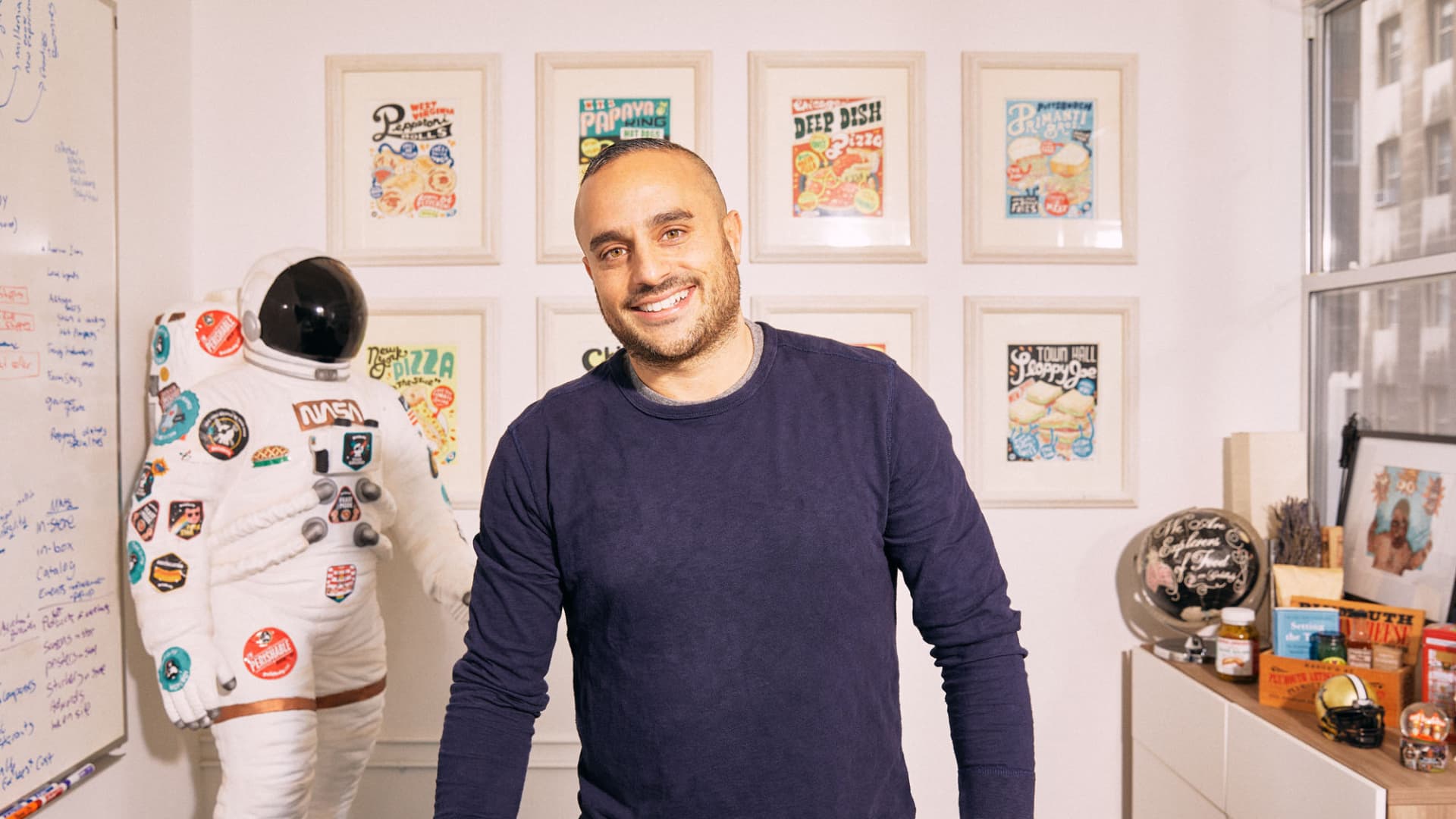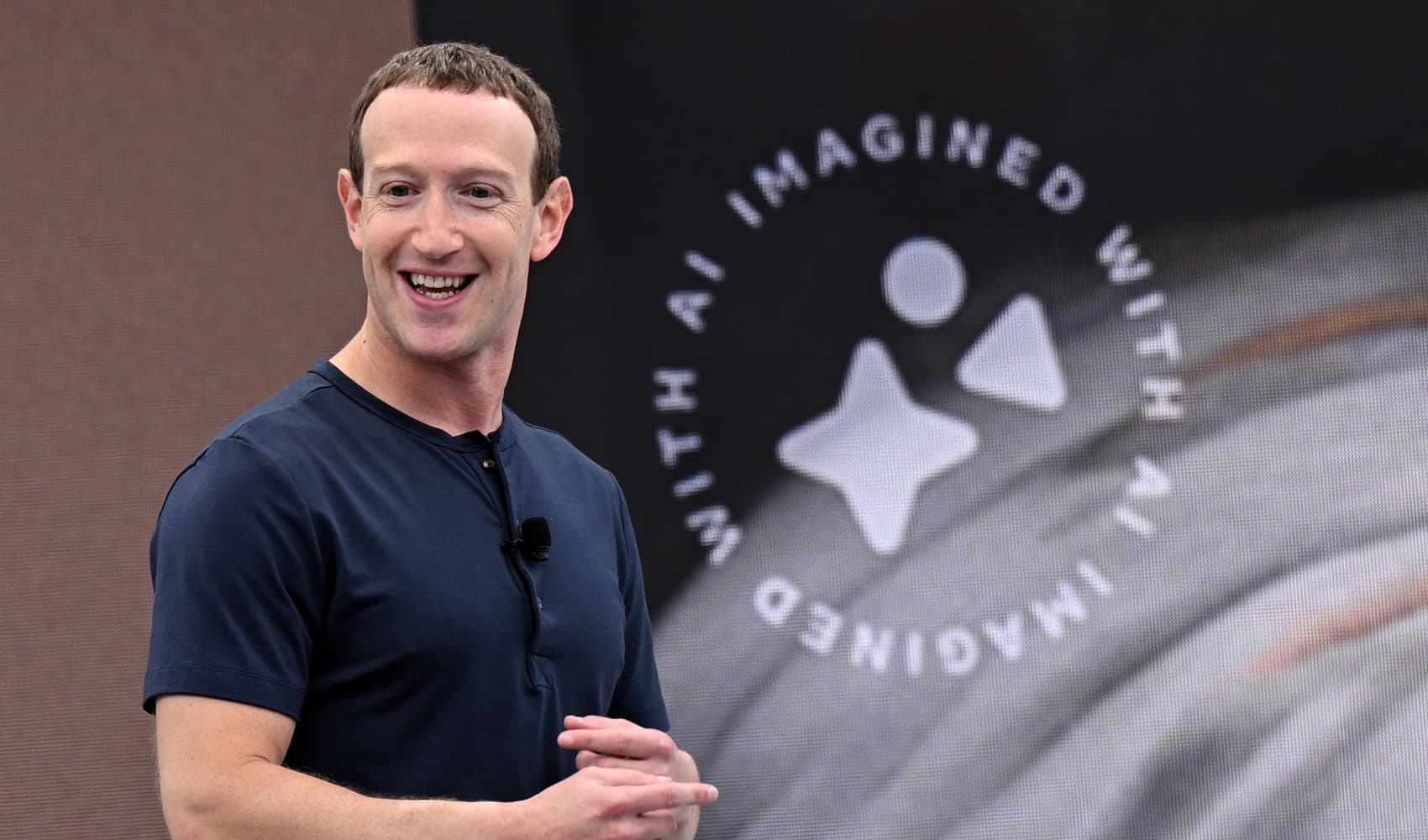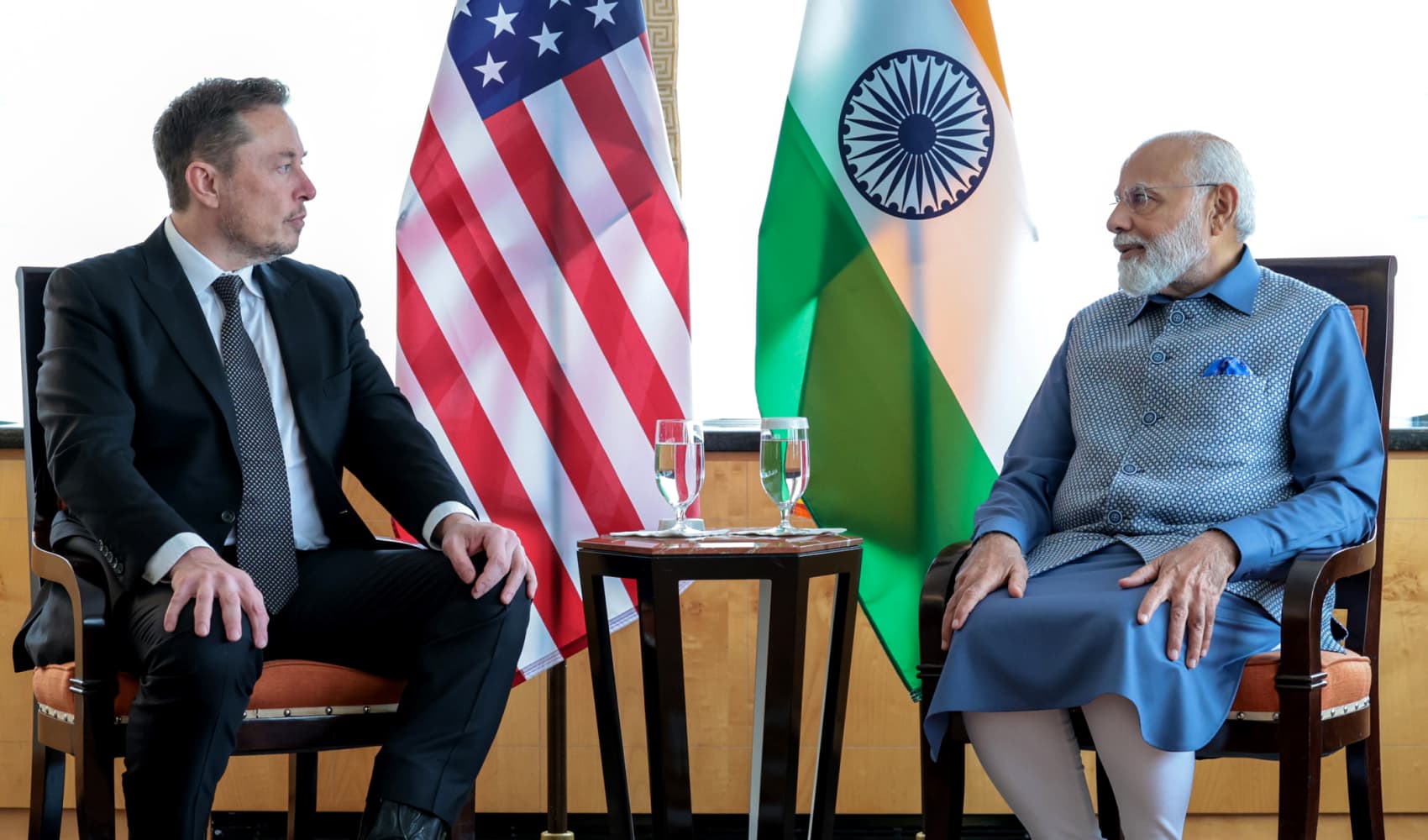
- Chef David Chang's Momofuku is the latest restaurant brand to join Goldbelly, a national delivery platform for restaurants.
- Goldbelly has nearly doubled its restaurant and customer count this year, thanks to the pandemic.
- The crisis is also boosting Goldbelly's already robust holiday business, as consumers who are unable to return home, buy pies and regional side dishes from the e-commerce site.
Goldbelly is adding chef David Chang's Momofuku to its national delivery service as the coronavirus pandemic drives customers and restaurants to the e-commerce site in droves.
CEO Joe Ariel founded Goldbelly in 2013, when he was living in New York City and couldn't find a local restaurant to meet his hankering for Nashville hot chicken or Southern-style biscuits. It's since raised more than $33 million in funding, and its latest round@m, in 2018, was led by restaurateur Danny Meyer's Enlightened Hospitality Investments.
Prior to the pandemic, Goldbelly was adding restaurants to the platform at a steady clip. But as lockdowns went into place across the United States, eateries that had previously eschewed delivery services and takeout had to pivot.
Like DoorDash and Grubhub, Goldbelly is one of the beneficiaries of the abrupt shift in behavior. It's almost doubled its restaurant and customer count on its website this year, with establishments like Shake Shack, the burger chain founded by Meyer, joining its ranks. Including Momofuku, the company has nearly 700 restaurants listed on its marketplace.
"Many partners who were interested but somewhat reluctant have now embraced giving the platform a chance and said to us that they couldn't believe they hadn't done it sooner," Ariel said.
'Gravy seals' hunt for regional craves
Money Report
But Goldbelly also has some key differences from the third-party delivery apps that work with local restaurants. It ships food items anywhere in the country, rather than being bound by a two- or three-mile radius. Restaurants have the freedom to fulfill their orders during lulls, like mid-afternoon or at midnight, when the kitchen is closed to takeout and delivery customers.
And it's the restaurants, rather than Goldbelly, that are responsible for creating and shipping their food items. The business model means that Goldbelly is profitable, according to Ariel.
But eateries also benefit from joining the e-commerce site. Ariel said that some restaurants are seeing higher sales volumes on Goldbelly than from their dining rooms before the pandemic.
The pandemic introduced another facet to the Goldbelly experience: live cooking classes with famous chefs like Daniel Boulud. The classes are free with the purchase of the related meal kit.
Goldbelly uses a team of scouts, internally known as the "gravy seals," to scour the country and social media for restaurants beloved by their customers or offering unique regional specialties. Eateries on the platform run the gamut from nationally known establishments to mom-and-pop restaurants.

The company also works with the restaurants to decide on the price that the consumer pays, which ultimately includes the platform's transaction fees and the hefty expense of overnight shipping the food anywhere in the country. The food can come frozen, already assembled or as parts of a meal kit to cook the dish easily.
A more frequent treat
Ultimately, the New York bagels or Philadelphia cheesesteaks will cost more than if a customer bought them in person. But the service is for consumers who find themselves far flung from the comfort food they want to eat. And as the current crisis restricts travel and some consumers decamp to the suburbs, they are willing to pay the premium price. The service has also transitioned from being used for special occasions to something sought out more frequently.
"As the world has changed, it's become much more of a weekly and monthly event," Ariel said.
The fourth quarter is typically Goldbelly's busiest time of the year, thanks to the holidays, according to Ariel. The approach of Thanksgiving means an influx of orders for pies, specialty side dishes and turduckens.
"This year, it's going to be a different level because people aren't traveling to see their families," Ariel said.
Goldbelly customers are buying multiple items to ship to different people, creating their own virtual Thanksgiving dinners via Zoom. Corporate employers are looking to give their workers and clients Goldbelly's meal kits and virtual cooking classes in place of in-person office parties.
Of course, the pandemic is also introducing new challenges to Goldbelly. Vaccine makers are worried about potential delays in their rollouts due to a shortage of dry ice. Goldbelly's merchants use the solid form of carbon dioxide for shipping some of their items, like ice cream, across the country overnight.
Goldbelly has an entire department devoted to brainstorming how to keep food items frozen — or at least cold — before they arrive to customers.
"It's something we're keeping our eyes opened for, but we have a few different approaches to attacking that before it becomes more of an issue," Ariel said, adding that the majority of Goldbelly orders do not use dry ice.
For Goldbelly and the rest of the world, a vaccine also means a return to traveling, dining inside restaurants and all of the other occasions that were abandoned during the pandemic. But Ariel thinks that consumers will continue to order from Goldbelly as frequently as they are now.
"We believe that the nationwide delivery of your favorite foods is going to continue to be a value proposition that's really exciting for a lot of people, especially those that experienced it and made a deeper emotional connection with our brand and the platform during this time," Ariel said.






